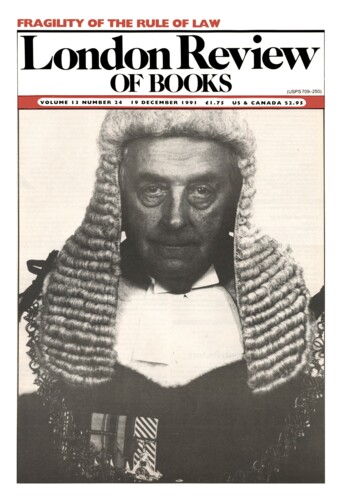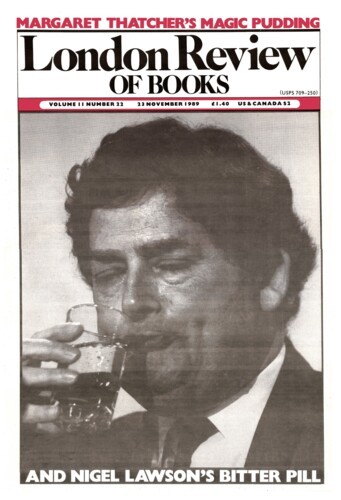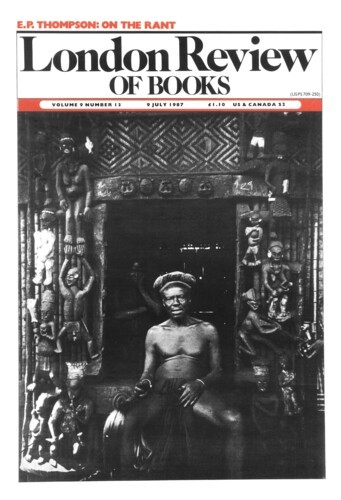Paul Hirst
Paul Hirst is Professor of Social Theory at Birkbeck College, University of London. His After Thatcher was published by Collins earlier this year.
Endism
Paul Hirst, 23 November 1989
It is remarkable that an essay by a State Department official in the conservative quarterly the National Interest should provoke a storm of debate in the US and be syndicated by papers throughout the world. The burden of Francis Fukuyama’s argument is that we are witnessing the end of history. That end will not be as it has so often been imagined – either apocalypse or utopia. History, in the sense of fundamental ideological and political change, will cease with the worldwide triumph of Western liberalism. The blunt political message that the Cold War is over and the West has won is softened by suitably edifying references to high social theory. Much of his essay is taken up with a discussion of Hegel. Essays of this kind do not attract massive media attention because they make the right up-market references. Fukuyama has become news because he has caught a mood and because he has justified that mood by seizing upon a fundamental and novel fact.’
Anti-Anti-Racism
9 July 1987
Pieces about Paul Hirst in the LRB
Pow-Wow
Mary Beard, 26 October 1989
If you want to see the cutting edge of Thatcherism, go to Basingstoke. There, as we learn in Paul Hirst’s After Thatcher, the local council (careful, no doubt, with its ratepayers’...
Read anywhere with the London Review of Books app, available now from the App Store for Apple devices, Google Play for Android devices and Amazon for your Kindle Fire.
Sign up to our newsletter
For highlights from the latest issue, our archive and the blog, as well as news, events and exclusive promotions.



